By Brandelyn Twellman
Share
By Brandelyn Twellman
Share
Middle East North Africa (MENA) Region aquaculture stakeholders attended two U.S. Soybean Export Council (USSEC) Aquaculture Feed Nutrition and Production Trainings in November and December. Organized in cooperation with WorldFish Egypt, the webinars were hosted virtually at the Egypt Soy Excellence Center.
The first training covered a variety of topics, including aquaculture systems technology, genetic improvement programs in aquaculture, future prospects of aquaculture in Egypt, and the dynamics of critical water quality parameters in fishponds. Over 100 leading fish producers and aquaculturists were in attendance.
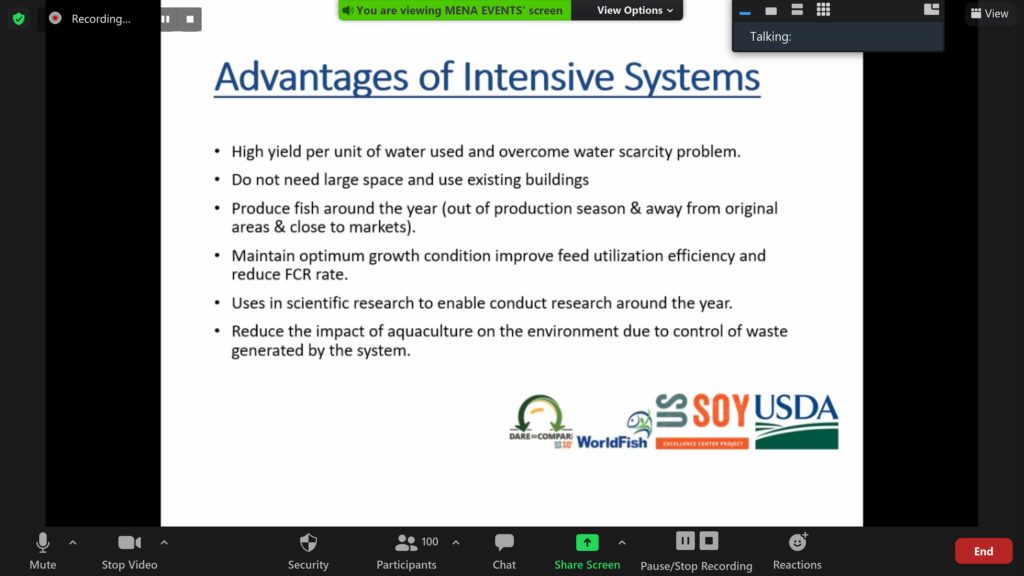
mena1
The first MENA Aquaculture Training covered a variety of topics, including the advantages of intensive aquaculture systems.
An additional 100 participants attended the second training, where topics included comparative studies on protein sources in aqua feeds, principals of fish nutrition, nutritional diseases of fish in aquaculture and their management, and feeding strategies in different aquaculture systems.
During both webinars, presentations were followed by open discussion among participants, as well as question-and-answer sessions.
Trainings across the agricultural industry, including aquaculture production, are one way Egypt’s Soy Excellence Center is working to fulfill its mission of being a one-stop-shop for industry training by continuing to hold programs for customers of U.S. Soy.
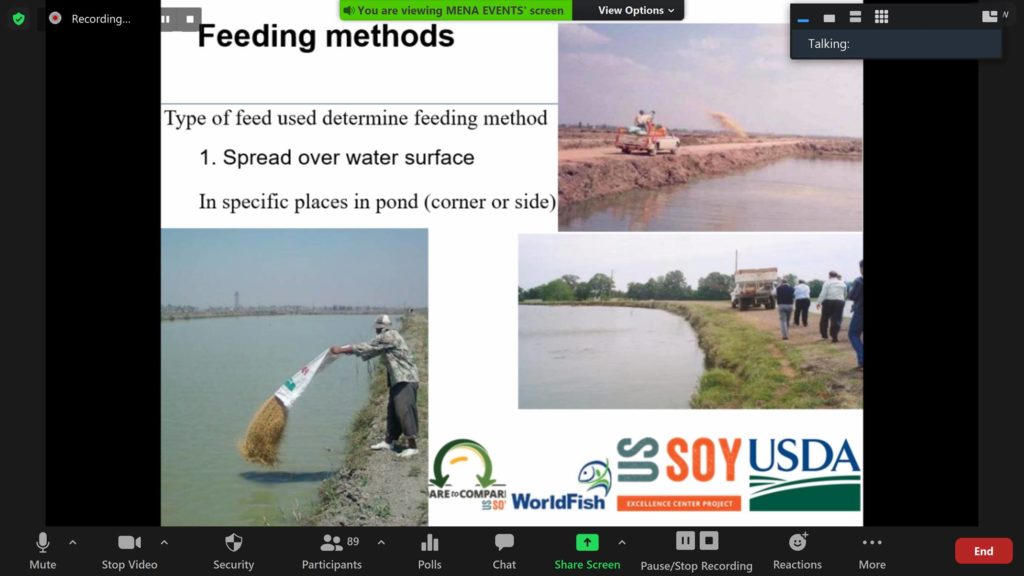
mena2
Feeding methods and strategies were presented at the second MENA Aquaculture Training.
279 Comments
Leave A Comment
You must be logged in to post a comment.


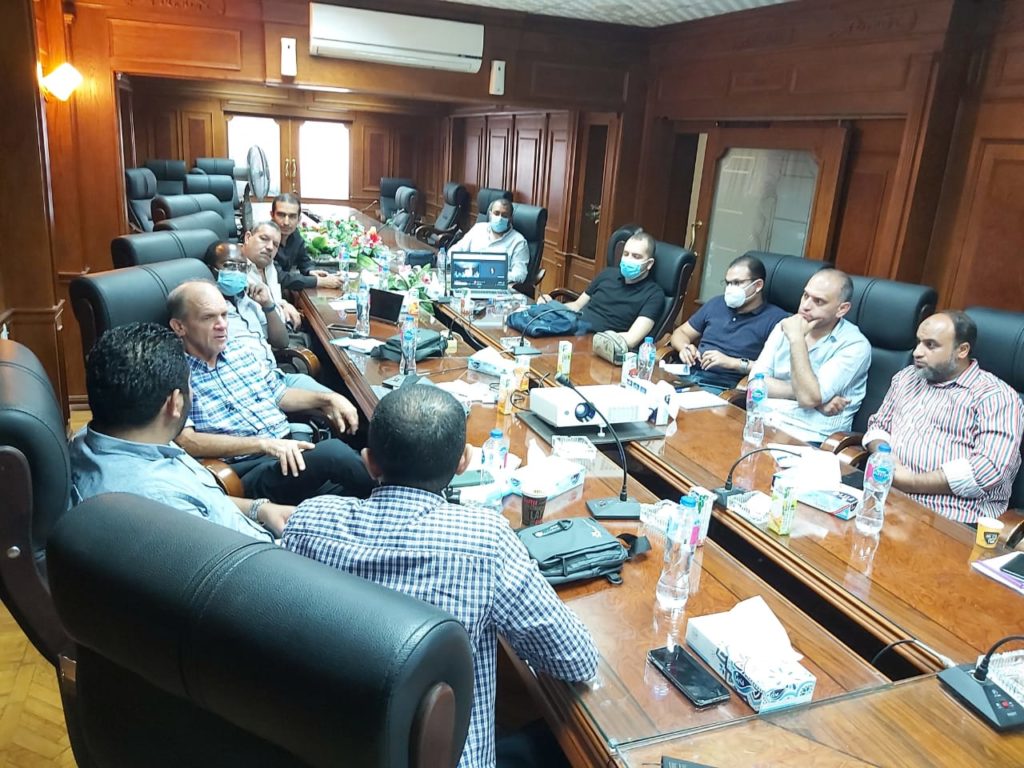
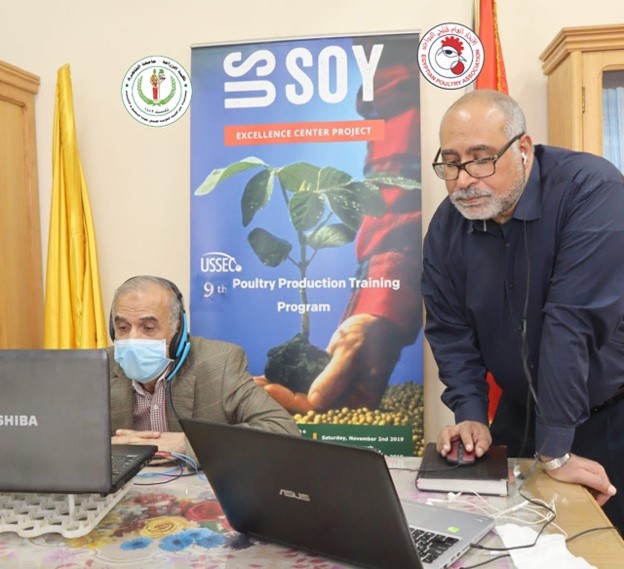
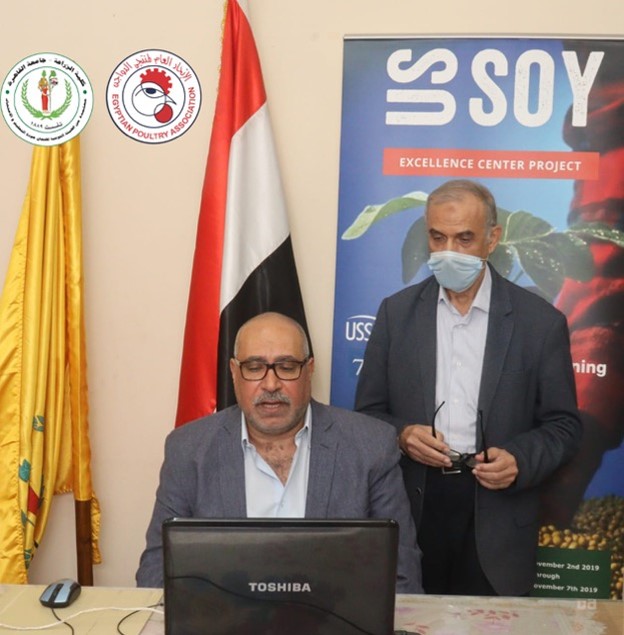

Well done
nice
Nice
Great.
Amazing
Amazing , great job
Great job
Great job 👍
It’s great to see capacity-building initiatives like these taking root in the MENA region. With aquaculture becoming an increasingly vital part of food security and economic development, practical training programs are essential for equipping producers with the knowledge to improve sustainability, productivity, and biosecurity. Hopefully, this momentum continues with more region-specific research, farmer outreach, and policy support to grow the sector responsibly.